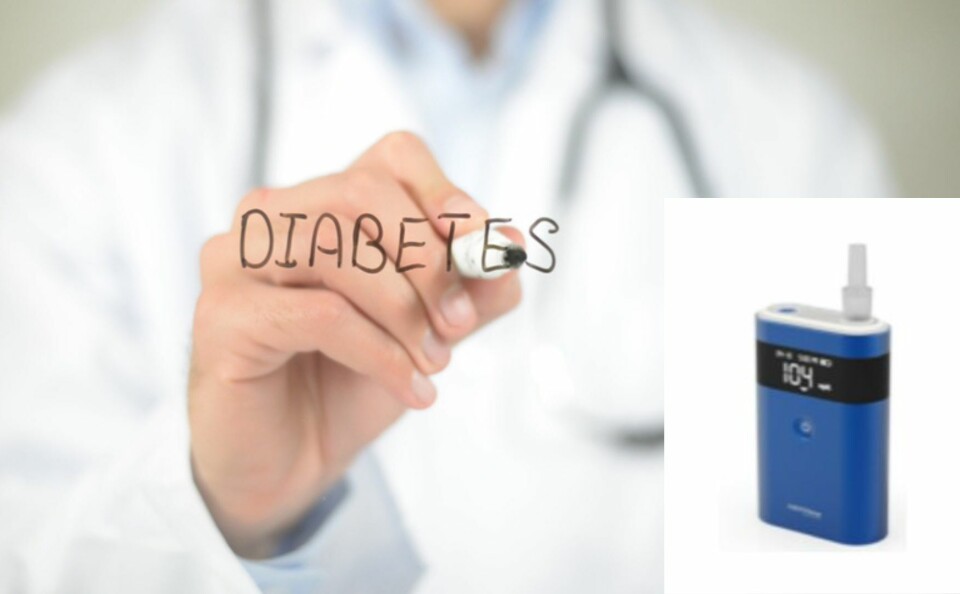-
What to expect from the weather in France for the long Easter weekend
Outdoor eggs hunts set to be marred by rain, and in the south by thunderstorms
-
Which French motorway toll subscription offers the best deal?
The ‘best’ packages vary depending on how often you use the road, the type of vehicle, and your destination
-
Alps avalanche risk remains high and 1,000 homes without power after heavy snow
Rail and road traffic disrupted but confinement order lifted for residents of Tignes in Savoie
French firm trials diabetes breath-test inspired by dog’s nose
The handheld blood glucose monitor measures compounds in the breath and has been nicknamed Lassie

Pricking a finger to monitor blood glucose levels could soon be replaced by a hand-held device that measures organic compounds in the breath.
The breath-test is the brainchild of Toulouse-based firm BOYDSense, and is nicknamed Lassie because of its unusual inspiration.
CEO Ben Delhey said: “As we all know, dogs have fantastically sensitive noses.
“They have been trained to sniff out Covid, for example, and can even predict epileptic fits.
“So that’s the power we want to harness. Our small, handheld device can show people’s blood sugar levels instantly.”
Read more: How do French healthcare costs change for long-term illnesses?
Device measures compounds in breath
The Breath Glucose Device is aimed at people living with diabetes. It is smaller than an iPhone, albeit a little thicker, completely reusable, and calculates blood glucose value within current accuracy standards.
“It measures ‘volatile organic compounds’ in a person’s breath and gives results in a few seconds, sending them to a mobile phone,” Mr Delhey said.
These compounds can reveal a lot about a person’s health and, in theory, monitoring them could flag up a whole range of diseases, including asthma and certain cancers.
“We know that other scientists are working on these, but there are ethical considerations,” said Mr Delhey.
“This device is in no way intended to replace a doctor, or to allow people to self-diagnose at home without medical supervision.”
Read more: Remote monitoring of patients in France moves into the mainstream
Discreet way of monitoring blood glucose
It is intended to offer an alternative to invasive and non-discreet techniques for monitoring blood glucose in diabetics, such as finger-pricking or sensors worn on the body.
It is hoped users will test earlier and more often, making a positive impact on the long-term management of diabetes.
According to the IDF Diabetes Atlas, there are currently 537 million adults (20-79 years old) living with diabetes worldwide – one in 10 of the global population.
This is predicted to rise to 643 million by 2030 and 783 million by 2045. More than three-quarters of adults with diabetes live in low- and middle-income countries.
“Every patient with diabetes has different needs and different lifestyles.
“Some patients might only test once per day, in the morning, to calculate their insulin dose for that evening,” said Mr Delhey.
“There is a lot of discussion about personalised healthcare, matching it with lifestyles, personal lives, and sports.
“With diabetes, there are no miracles. Patients can manage lifestyle changes, lose weight, do exercise, clean up their diet and minimise the effects, but it will always be there.”
Other reasons to track blood glucose levels
He thinks the breath-test might also be useful for non-diabetics in high-level sports, or people who have been diagnosed as pre-diabetic.
“There are people in the healthy population who have legitimate reasons to track their blood glucose,” he said.
The company has just finished a clinical trial involving 130 patients at the CHU in Toulouse, and hopes to have the devices on the market within the next few years.
“We need more developmental investment and more clinical data,” said Mr Delhey.
“We also need to deal with the regulatory aspects and further miniaturisation. So it will take a few more years.”
Related articles
Medical cannabis gets go-ahead for pain relief in French hospitals
Trial into new free health check-ups begin in France: who can benefit?
16 things you can do at a French pharmacy other than buy aspirin
























